A bold Israeli airstrike targeted a meeting of Hamas’s top leaders in Qatar’s capital, Doha, on Tuesday, as they were said to be gathered to discuss a new US-sponsored hostage-ceasefire proposal aimed at ending the war in Gaza, with reports differing as to whether the attack was successful.
Israel was said to be “increasingly optimistic” about the results of the strike, which Prime Minister Benjamin Netanyahu said could open the door to the immediate end of the war. Hamas, by contrast, said the strike had been a failure.
The gathering was believed to include all of the terror group’s top leadership outside Gaza, including the leader of Hamas’s Gaza units, Khalil al-Hayya; Zaher Jabarin, who leads Hamas in the West Bank; Muhammad Darwish, the head of Hamas’s Shura Council; Nizar Awadallah, and Khaled Mashaal, the head of Hamas abroad.
While Israel confirmed the strike, dubbed “Operation Summit of Fire” by the Israel Defense Forces, and awaited the outcome, an official statement published by Hamas said that five people had been killed, but insisted none were members of the group’s senior leadership cadre.
The terror group said the dead were Himam al-Hayya, son of Khalil al-Hayya; Jihad Labad Abu Bilal, Khalil al-Hayya’s office director; and three “associates” — apparently bodyguards or advisers to senior Hamas officials — Abdullah Abu Khalil, Muaman Abu Omar, and Ahmad Abu Malek.
Qatar said one member of its security forces was also killed.
Hamas said the attack took place as the terror group’s delegation was discussing the US proposal, and asserted this showed Netanyahu’s government is “not interested in reaching any agreement.”
Netanyahu said, however, that Israel had targeted a leadership that had planned and celebrated the October 7, 2023, invasion and massacre in southern Israel, and urged Gazans: “Make peace with us, and accept President Trump’s proposal. Don’t worry, you can do it… But you’ve got to take these people out of the way. If you do, there is no limit to our common future.”
Despite claiming that Israel had failed in the operation, Hamas offered no immediate proof that its top leaders had survived. The terror group has been known in the past to only confirm the death of its leaders weeks or months after the fact.
Most of Hamas’s leadership in Gaza has been killed during the past two years of war with Israel, but until now, its political leadership abroad has been mostly untouched. Notable exceptions were former politburo chief Ismail Haniyeh, who was assassinated on a visit to Iran, and his former deputy Saleh al-Arouri, who was killed in Beirut, both in 2024.
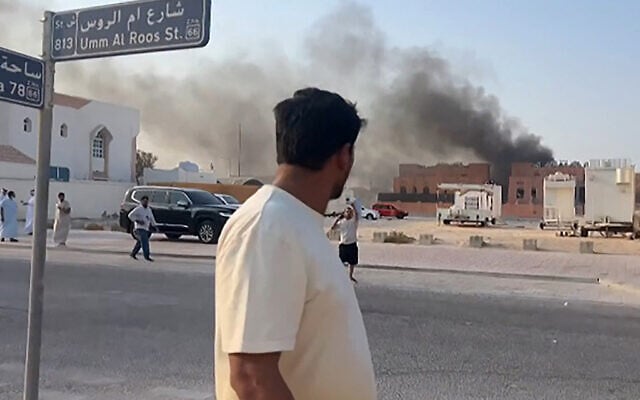
Explosions in Doha
The first reports of the blasts emerged at around 4 p.m. on Tuesday, when eyewitnesses reported hearing several explosions in the Qatari capital, and smoke was seen rising over the city’s Katara District.
Reuters eyewitness said plumes of black smoke could be seen billowing from the city’s Legtifya gas station. Next door to the station is a small residential compound that has been guarded by Qatar’s emiri guard 24 hours a day since the beginning of the war in Gaza.
Shortly after reports of the strike began to circulate, the IDF and Shin Bet confirmed that they had targeted Hamas’s leadership in Doha with a strike carried out by the Israeli Air Force.
“The members of the leadership who were struck led the terror organization’s activities for years, and are directly responsible for carrying out the October 7 massacre and waging the war against the State of Israel,” the statement said.
The military said it had taken steps to mitigate civilian harm in the strike, including by using precision munitions and other intelligence.
More than 10 IAF fighter jets dropped over 10 munitions in the strike, according to military officials, and all hit the target building within seconds.
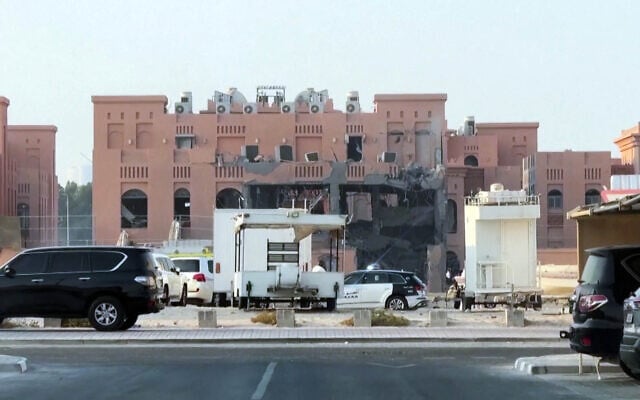
In Israel, the office of Netanyahu said in an English-language statement that the strike had been an entirely Israeli operation.
“Today’s action against the top terrorist chieftains of Hamas was a wholly independent Israeli operation,” wrote the PMO. “Israel initiated it, Israel conducted it, and Israel takes full responsibility.”
While Israeli media initially reported that US President Donald Trump was aware of the planned strike ahead of time and had given his blessing for it to go ahead — despite Qatar being a close US ally and home to the largest US airbase in the Middle East — an official White House statement told a different story.
Reading out a statement several hours after the strike, White House Press Secretary Karoline Leavitt criticized Israel for “unilaterally bombing inside Qatar, a sovereign nation and close ally of the United States that is working very hard and bravely taking risks with us to broker peace.”
“It does not advance Israel’s or America’s goals,” she said.
A senior Qatari official similarly panned Israel for striking Hamas as it was discussing the ceasefire and hostage deal proposal submitted by US Special Envoy Steve Witkoff.
“Hamas received the new US proposal from us, which we obtained from Witkoff last week in Paris. Qatari Prime Minister Mohammed Abdulrahman Al Thani met with Hamas negotiators yesterday,” the official said. “The Hamas delegation then decided to meet again today to discuss the proposal, traveling from Turkey to Qatar where the strike took place.”
He said that any hope of reaching a deal to end the bitter fighting in Gaza had once again been “undermined” by Israel, “further prolonging the war and complicating efforts to bring back the hostages.”
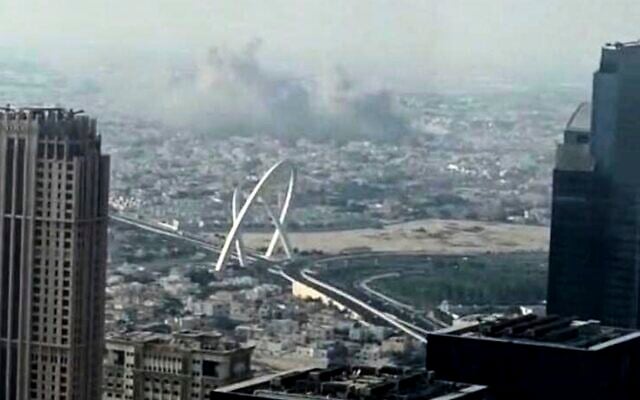
The US-crafted proposal that Hamas was discussing at the time of the strike reportedly envisions the terror group releasing all remaining hostages within the first 48 hours in exchange for an assurance from the US that Israel would not subsequently resume the war, along with the release of several thousand Palestinians imprisoned in Israel. Israel would be expected to withdraw gradually from Gaza in the first days of the ceasefire.
An official briefed on the talks told Reuters on Monday that Qatar’s al-Thani was pushing the terror group’s leadership to “respond positively” to the proposal.
Who did Israel target
The Hamas officials targeted in Israel’s attack are the most senior figures the group has left, as its leadership has steadily been whittled down by Israel over the past two years of war.
Al-Hayya has been the head of Hamas’s operations in Gaza since the assassination of his predecessor Yahya Sinwar, the architect of the October 7, 2023 slaughter, in 2024. Prior to that, he had served as Sinwar’s deputy.
He became the public face of Hamas’s leadership following Haniyeh’s death that same year, and has resided in Qatar since he left the Gaza Strip shortly before the October 7 assault. He is a key player in ceasefire negotiations, and has headed multiple delegations to Egypt over the past two years for this purpose.
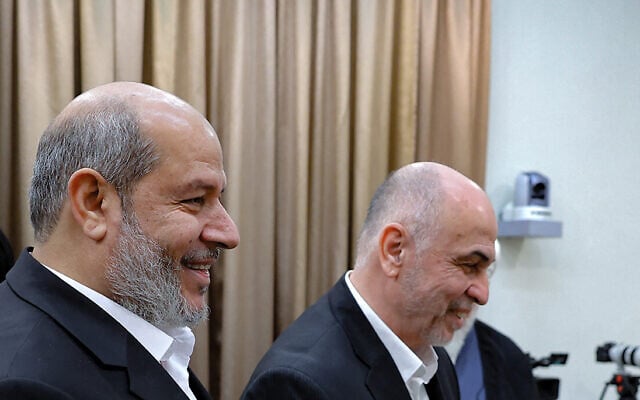
Mashaal, the leader of Hamas abroad, is the former head of the organization, having filled the position between 1995 and 2017, at which point he was replaced by Haniyeh, amid reports of his declining influence within the movement.
In 1997, Israeli Mossad agents made a failed bid to poison Khaled Mashaal in Jordan, but were forced to deliver the antidote after Jordan’s then-king Hussein threatened to void the still-fresh peace treaty between Jerusalem and Amman.
His net worth is estimated to be around $5 billion.
Jabarin also found himself rising through the terror group’s ranks in the wake of Israeli assassinations, having been appointed to lead Hamas in the West Bank after his predecessor al-Arouri was assassinated in Beirut, Lebanon, in January 2024.
Jabarin has lived abroad since 2011, when he was released from prison in the Gilad Shalit prisoner exchange, which was in part negotiated by Awadallah. In recent years, he has reportedly spent most of his time in Turkey.
Darwish, who leads Hamas’s Shura Council, the body tasked with advising Hamas leadership on strategic matters, has lived his whole life abroad, having been born in a Palestinian refugee camp in Lebanon.
Little is known about Darwish’s activities within the terror group, although he has headed several delegations during recent ceasefire and hostage release deals.
Awadallah, a negotiator in the Shalit deal, has lived abroad since the October 7 onslaught, but originally hails from Gaza City. He was arrested by Israel in 1989 and served six years in prison. Upon his release, he kept a low profile for roughly a decade, before becoming active in the group again in the mid-2000s, this time in the political branch.
Strike comes after deadly Jerusalem shooting
The attack on Hamas’s leadership in Doha came shortly after Hamas’s armed wing, the Izz ad-Din al-Qassam Brigades, claimed responsibility for a deadly terror attack in Jerusalem on Monday. Six people were killed when a pair of Palestinian terrorists opened fire on vehicles and pedestrians in Ramot Junction.
The strike in Doha was a direct response to the Jerusalem shooting, as well as to a deadly attack on an Israeli tank in northern Gaza, also on Monday, Netanyahu and Defense Minister Israel Katz said in a joint statement.
Netanyahu told security agencies on Monday night to prepare for a strike on Hamas leaders abroad, and Katz had “fully supported the move,” the two said.
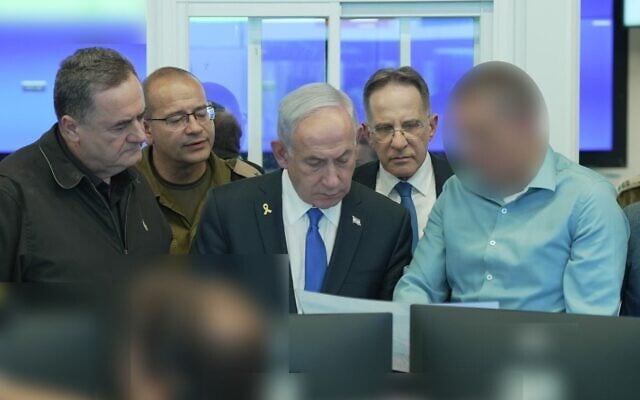
An “operational opportunity” was identified at noon on Tuesday, the statement added, and the IDF and Shin Bet received the green light to go ahead with the attack.
“The prime minister and defense minister believed the operation was fully justified, given that this Hamas leadership was the one that initiated and organized the October 7 massacre,” Netanyahu and Katz said, “and has since continued to carry out murderous attacks against Israel and its citizens, including taking responsibility for the murder of our civilians in yesterday’s attack in Jerusalem.”
Israel has long threatened to strike Hamas leaders wherever they are, and not just stick to eliminating those within the Gaza Strip itself.
IDF Chief of Staff Lt. Gen. Eyal Zamir reiterated that warning as he authorized Tuesday’s strike, saying that Israel would “settle accounts” with its enemies anywhere in the world.
“These are the terrorists whose only aspiration was to be the spearhead for the destruction of the State of Israel. We will continue to carry out this mission everywhere, at any range, near and far, in order to settle accounts with our enemies,” he told the Israeli Air Force pilots who set out to carry out the strike, according to a readout published by the IDF.
״We are settling a moral and ethical account on behalf of all the victims of October 7. We will not rest and we will not be silent until we bring back our hostages and defeat Hamas.”

